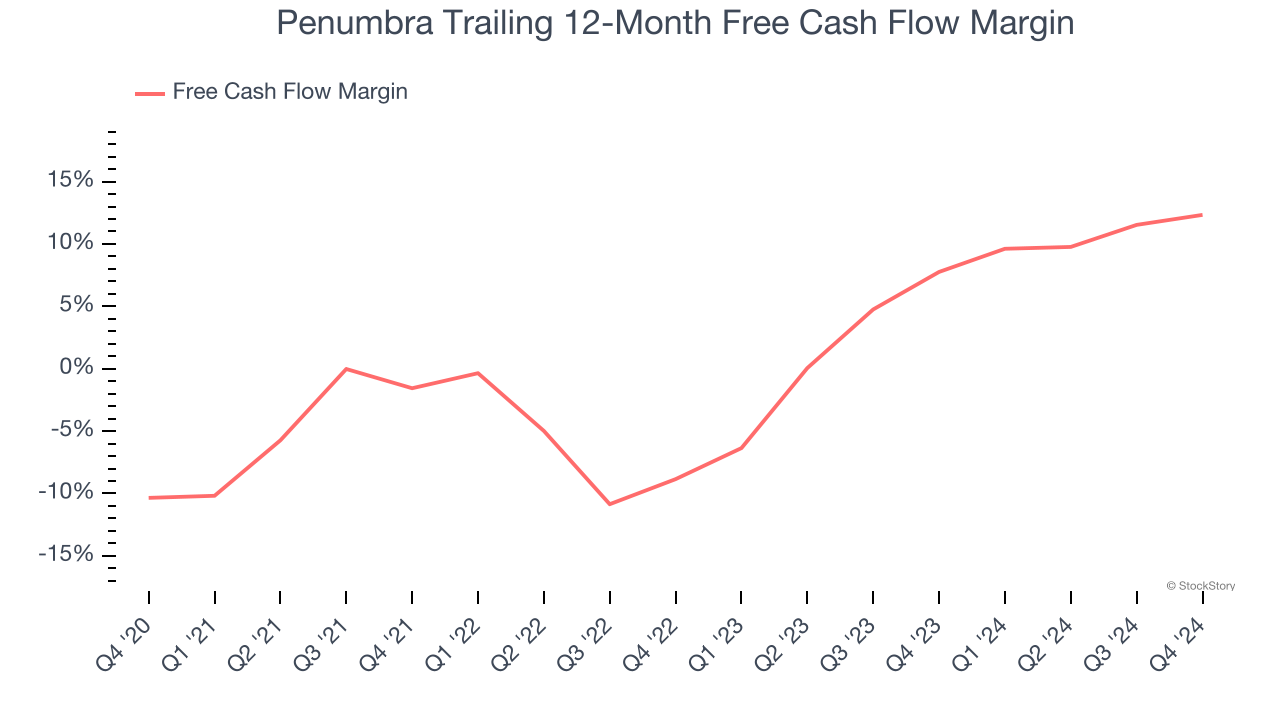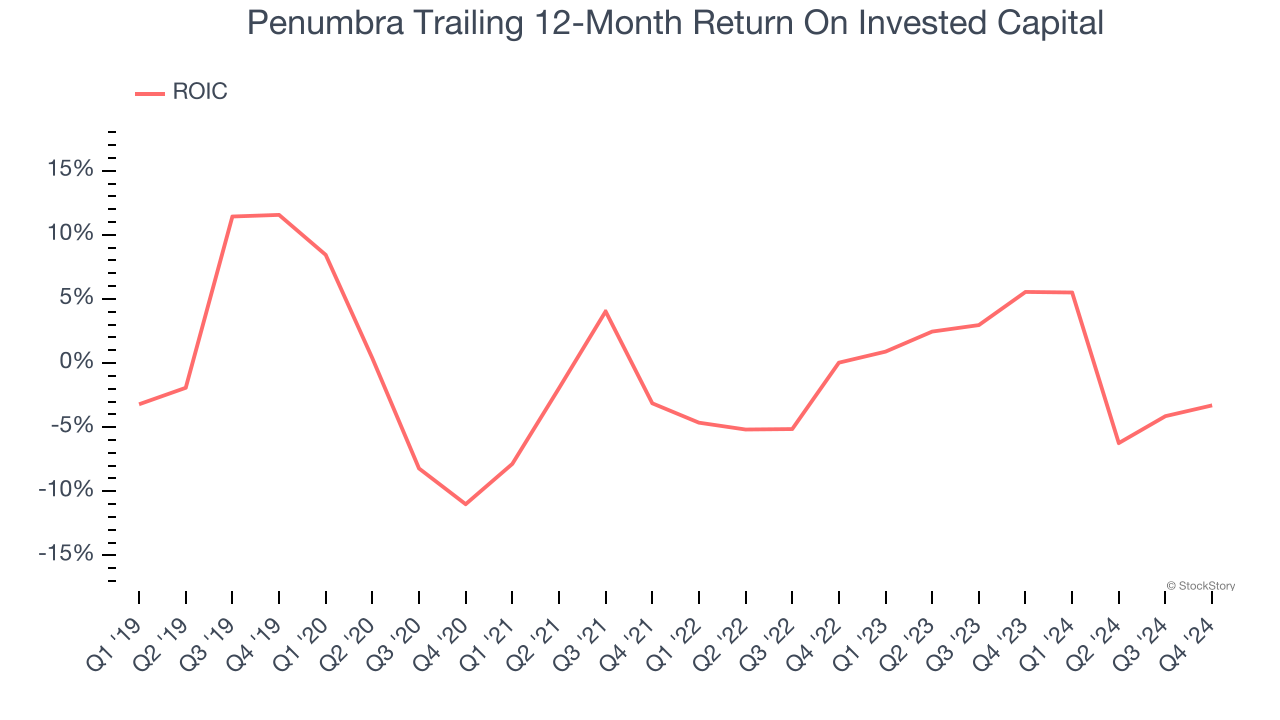
In a sliding market, Penumbra has defied the odds, trading up to $255.82 per share. Its 29.5% gain since October 2024 has outpaced the S&P 500’s 13.6% drop. This was partly due to its solid quarterly results, and the run-up might have investors contemplating their next move.
Is now the time to buy Penumbra, or should you be careful about including it in your portfolio? Get the full breakdown from our expert analysts, it’s free.
We’re glad investors have benefited from the price increase, but we're cautious about Penumbra. Here are three reasons why PEN doesn't excite us and a stock we'd rather own.
Why Is Penumbra Not Exciting?
Founded in 2004 to address challenging medical conditions with significant unmet needs, Penumbra (NYSE: PEN) develops and manufactures innovative medical devices for treating vascular diseases and providing immersive healthcare rehabilitation solutions.
1. Fewer Distribution Channels Limit its Ceiling
Larger companies benefit from economies of scale, where fixed costs like infrastructure, technology, and administration are spread over a higher volume of goods or services, reducing the cost per unit. Scale can also lead to bargaining power with suppliers, greater brand recognition, and more investment firepower. A virtuous cycle can ensue if a scaled company plays its cards right.
With just $1.19 billion in revenue over the past 12 months, Penumbra is a small company in an industry where scale matters. This makes it difficult to build trust with customers because healthcare is heavily regulated, complex, and resource-intensive.
2. Mediocre Free Cash Flow Margin Limits Reinvestment Potential
Free cash flow isn't a prominently featured metric in company financials and earnings releases, but we think it's telling because it accounts for all operating and capital expenses, making it tough to manipulate. Cash is king.
Penumbra has shown mediocre cash profitability over the last five years, giving the company limited opportunities to return capital to shareholders. Its free cash flow margin averaged 1.9%, subpar for a healthcare business.

3. Previous Growth Initiatives Have Lost Money
Growth gives us insight into a company’s long-term potential, but how capital-efficient was that growth? Enter ROIC, a metric showing how much operating profit a company generates relative to the money it has raised (debt and equity).
Penumbra’s five-year average ROIC was negative 2.4%, meaning management lost money while trying to expand the business. Investors are likely hoping for a change soon.

Final Judgment
Penumbra isn’t a terrible business, but it isn’t one of our picks. With its shares outperforming the market lately, the stock trades at 67× forward price-to-earnings (or $255.82 per share). This multiple tells us a lot of good news is priced in - we think there are better opportunities elsewhere. We’d recommend looking at the most dominant software business in the world.
Stocks We Would Buy Instead of Penumbra
Donald Trump’s victory in the 2024 U.S. Presidential Election sent major indices to all-time highs, but stocks have retraced as investors debate the health of the economy and the potential impact of tariffs.
While this leaves much uncertainty around 2025, a few companies are poised for long-term gains regardless of the political or macroeconomic climate, like our Top 5 Strong Momentum Stocks for this week. This is a curated list of our High Quality stocks that have generated a market-beating return of 175% over the last five years.
Stocks that made our list in 2019 include now familiar names such as Nvidia (+2,183% between December 2019 and December 2024) as well as under-the-radar businesses like Sterling Infrastructure (+1,096% five-year return). Find your next big winner with StockStory today for free.




